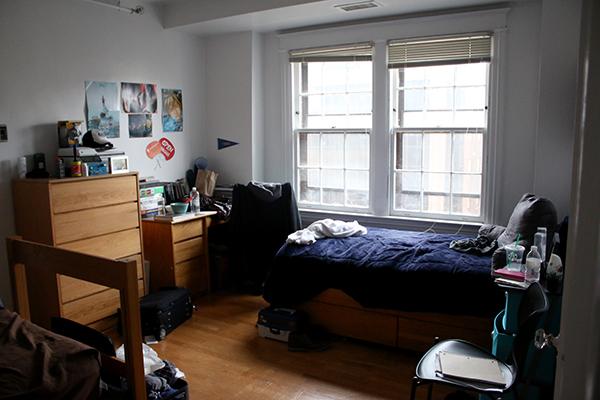The Residence Hall Association is calling for more money from GW for summer renovation of residence halls.
RHA president Mike Massaroli said GW currently allocates about $6 million each summer for renovations to residence halls, but that amount fails to cover the cost of needed updates. He said given the current budget, GW’s plan to update every residence hall on campus on a seven-year cycle “doesn’t seem to be achievable.”
Two years ago, the University declared its commitment to the renovation cycle after a spate of complaints about building quality, including the creation of a viral Facebook page called “GW Housing Horrors.”
The budget has increased from $4 million, the first year the cycle was established, to about $6 million this summer. Still, Massaroli said the funding wouldn’t be enough to renovate the more than two dozen residence halls on campus by 2020, the seventh year of the cycle.
“I think they would need to free up some additional money. There’s only so much housing can do with the money that’s already allocated. There are buildings that might really need to be renovated, but won’t be,” Massaroli said.
He said so far RHA “has been making good headway” with administrators within the Division of Student Affairs who have been sympathetic to RHA’s appeal for expanding the renovation budget.
The Board of Trustees approves the capital and operating budgets each May.
Massaroli acknowledged the next RHA executive board would likely have to continue the effort.
In the summer of 2014, the first year of the planned seven-year cycle, the University spent $4 million renovating The Dakota, International House and City Hall. Workers replaced flooring and upgraded kitchens and bathrooms in the The Dakota, gutted kitchens in International House and replaced carpeting and wallpaper in City Hall.
Last year, RHA lobbied for renovations to JBKO, but due to budget constraints, only Mitchell and Strong halls were chosen for renovations.
Over the summer, Mitchell Hall had its in-room vanities and piping replaced, and a new elevator and sprinkler system were installed in Strong Hall.
Last month, RHA distributed a survey to every student living on campus asking about their housing experience and taking suggestions about how their hall could be updated.
Massaroli said the results would help determine which residence halls RHA would back for renovations this summer.
University spokesman Kurt Hiatt said the University is planning to make “various upgrades” this summer as part of its “ongoing commitment to modernize and upgrade its residence halls.” He did not say which halls would receive upgrades and said their scope was still being discussed.
Hiatt declined to say if there were plans to increase the size of the budget.
Francis Scott Key Hall, 2109 F Street, Guthridge Hall, JBKO and Shenkman Hall are all “under consideration for updates” this summer, according to the GW Housing website.
Massaroli said officials are considering replacing furniture in Thurston Hall this summer and said RHA has also looked into doing a “major overhaul” of smaller residence halls.
The last major renovations of Thurston Hall, currently the largest residence hall on campus, were completed in 2007. Workers added a basement kitchen in December 2014. Officials have acknowledged since 2014 that the 87-year-old building needs a makeover, but budget restraints and questions over where to house the 1,100 freshmen that live there have prevented a serious plan from taking shape.
Massaroli said RHA wanted to see “small improvements” to Thurston, but said a significant renovation was likely at least a few years away.
Massaroli, who has lived in International House for three years, said performing regular upgrades on residence halls “makes everyone’s lives easier.”
“From my experience, it’s like an entirely different building even after a small renovation,” he said.







